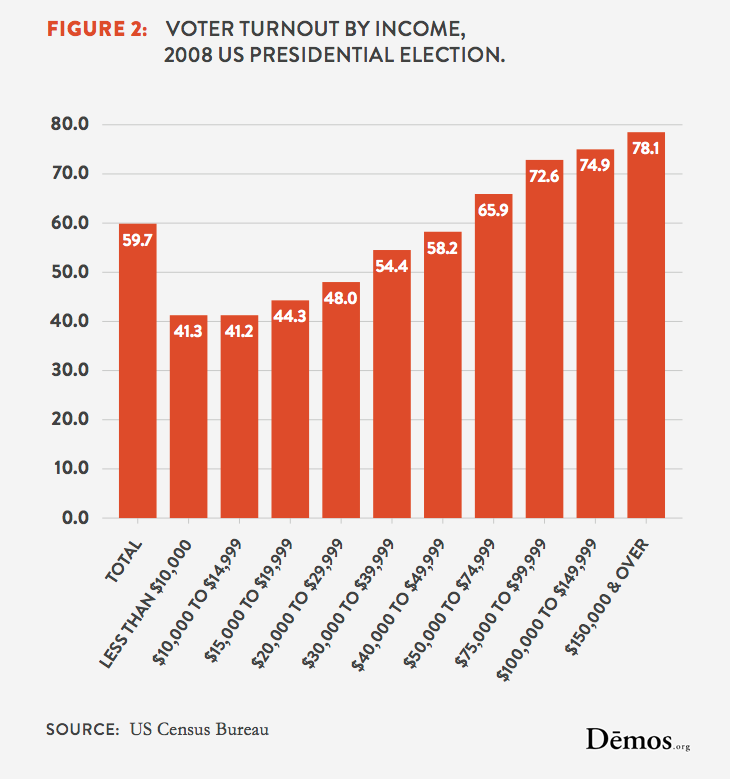Let me ask you a stupid question.
Would Republican governors and legislatures in more than two dozen states be about to turn down fully subsidized health insurance for millions of Americans if the Americans who were about to get this fully subsidized insurance weren’t poor?
Before we pretend that this is a serious question, keep in mind that the Americans eligible for Medicaid expansion aren’t the poorest of the poor, the takers of Republican myth. They work. That’s why they don’t currently qualify for Medicaid. But they’re the exactly the kind of Americans who have been brutalized by 30 years of conservative policies.
They’re also exactly the kind of Americans who typically don’t vote.
Of course Republicans wouldn’t be risking alienating hundreds of thousands of voters in each state in an election year if they actually thought these people might show up at the polls next November.
This month’s Journal of Economic Perspectives presents several takes why income inequality — as documented in this Congressional Budget Office graph below that became famous during the Occupy Wall Street protests — has become an increasingly devastating problem in America.

The Washington Post’s Lydia DePillis did my homework and read all the studies and found that there are several reasons our economy has become a reverse funnel the sucks money up to the top in ways that the rich in other industrialized country can only envy.

Mostly America’s inequality seems to be the result of incentives, opportunity and political polarization — all of which lead to lower mobility.
Lower tax rates at the top along with corporate governance that pushes executives to focus on increasing their own income have driven the tremendous gains in productivity to the rich.
America spends more money on education per student than most industrialized countries, but much of that only goes to higher education. And the single most predicative factor in whether someone will go to college is how much education his or her parents has.
Political polarization keeps the government unable or unwilling to take basic steps — like raising the minimum wage — to help the poor keep up. And because political donors to both parties tend to be rich, policies that help the rich are the only ones that pass.
There’s a simple way to fix all these problems, of course: get poor people to vote in much greater numbers.

Republicans know this.
When you think about conservative politics, it’s basically a conspiracy to stop people from voting.
The more education you have, the more likely you are to vote. So make college more expense. The poorer you are, the less likely you are able to make time to vote. So make voting burdensome and time-consuming. The more elections are dependent on appealing to a broad number of people, the less likely you can get away with policies that favor the rich. So make elections dependent on donors and let corporations donate as much as they want.
Conservative domination of our economy began in the 1980s because middle class voters were convinced to vote as if they were going to be rich one day. And we got policies that reflected that.
Seniors always vote. So their benefits have been safe. But in the post-Citizens United America, conservatives have finally revealed their agenda to dismantle Medicare and Social Security as we know them. Soon even seniors may turn on the GOP.
In America, the richer you are, the more you’re taught to how to maximize and exploit the system while the poor are taught that your only hope is to serve the system. If the working poor, who are growing larger in number every day, found out the power they actually have, America would never be the same.



